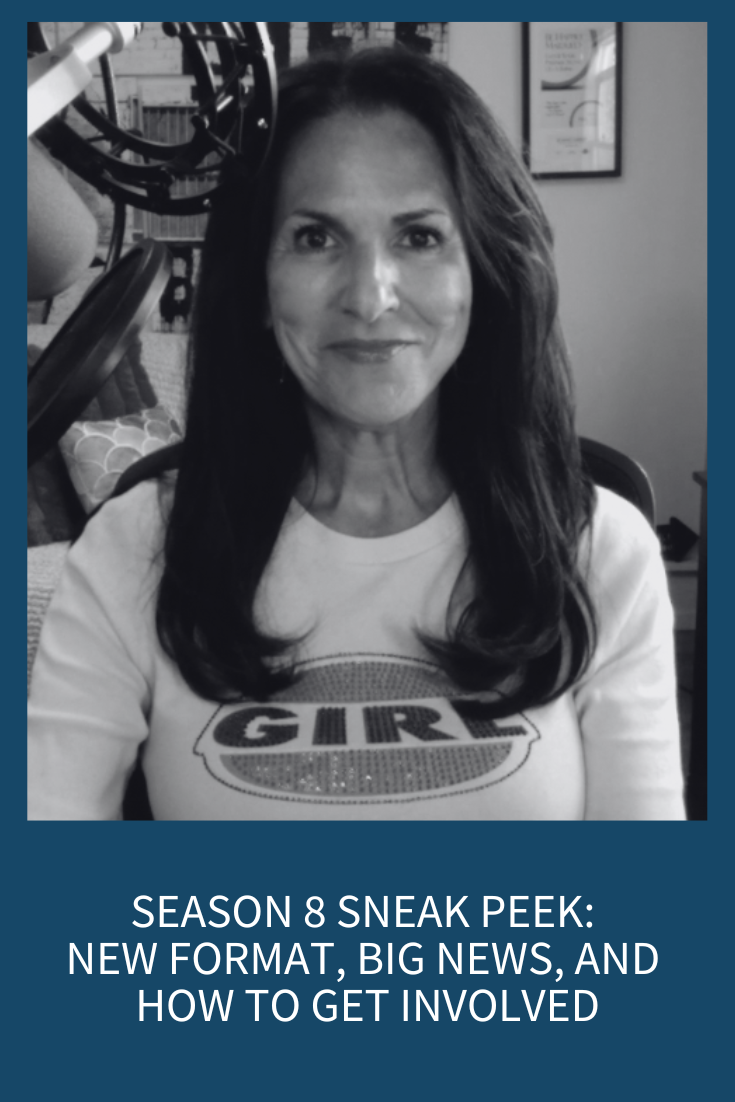
Jealousy has no place in a love relationship because jealousy is about fear, not love. But, it continues to be a huge issue in many relationships (I know this because you all keep asking me about it)! Today we’ll discuss the many ways jealousy might be showing up in your relationship, the eight things not to do if your partner is jealous, and the three ways to help move from jealousy to connection.
8-minute read
Before we jump in, I need to give a disclaimer. If your partner’s jealousy is tied to a serious mental health issue such as narcissistic personality disorder (or another personality disorder such as borderline), these tools aren’t going to work. If your partner is violent and jealous in such a toxic way that you live in fear, then these tips aren’t going to work. If you’re in that level of a toxic or harmful relationship, I’m going to urge you to seek out therapy as soon as possible and listen to my episodes on narcissism, gaslighting, and borderline personality disorder for specific education, tips and strategies for those situations. This episode isn’t for you.
What is Jealousy?
First and foremost, jealousy has nothing to do with love; it’s only about fear. Jealousy is a fear-based emotion and, at its core, it’s about insecurity. Jealousy is never about you and what you’re doing. It’s always about the other person and their thoughts and emotions about what you’re doing (or not doing).
Your partner gets jealous because they perceive someone or something as a threat to the relationship. This could include anything such as:
- An old boyfriend contacting you
- Getting a promotion or having another type of win at work
- Spending time with your friends or making new friends
- Losing weight
- Getting off drugs or stopping problematic alcohol use
- Getting fit and going to the gym or getting into a sport/activity that doesn’t involve them
- Spending time with your family
- Learning something new or acquiring more education/skills
- Having an active social media
Some of my clients are flattered when their partner is jealous. It’s not flattery. Jealousy is a warning that something is amiss with your partner and the relationship. Never take it as a good thing, and certainly never try to stoke those jealousy flames. Then it’s a sign of your insecurity, and you need to do some work looking at your own insecurity, self-esteem and need for validation.
Why is Your Partner Jealous?
Again, your partner isn’t jealous because of anything you have or haven’t done (even though they are blaming you for their jealousy). Jealousy is a choice in every situation and something they need to work on (not a behavior that you need to change). You are never responsible for someone else’s feelings or reactions. You could say the same thing to three different people and all of them could react in a different way. That’s because people feel the way they think. So, their thoughts about what you said are likely different from one another, or they have different points of view. Hence, different reactions and feelings.
Every person is responsible (including you) for their own feelings. If this is something you struggle with, you really should get my latest book, Boundaries Made Easy: Your Roadmap to Connection, Ease and Joy! This book lays out all the strategies you need to start managing your own emotions so you can create a deeper, more soulful connection in all your relationships.
There are four main traits found in the research of people who tend towards jealousy. Your partner might have one or all of these:
- Insecurity and low self-esteem are at the top of the heap when it comes to characteristics of jealous people. Jealousy is about insecurity and thinking that you’re inadequate and just not good enough for your partner. So, you don’t like it when they’re successful because you think they’re going to leave you now that they’re doing better, or they’re jealous of other people because they think you’ll leave them for someone better.
- Scarcity mindset. People get possessive because they think there isn’t enough to go around. I speak a lot about this underlying competition for resources in relationships. “You’re going out with your friends? Great. I guess I’ll just be stuck at home taking care of the kids!” “You got a promotion? Super. Now you’ll be away from home even more!” Some people think love is a pie, and if you give pieces of that pie to others, they’ll get less. The opposite is, of course, true. Love is abundant and grows and grows. The more you love, the more capacity you have to love even more.
- Emotional instability. Jealous people often show signs of emotional instability, such as anxiety, hypervigilance, and moodiness. This can stem from an underlying (un)diagnosed mental health disorder or unhealed childhood trauma.
- Anxious attachment style. Your attachment style always affects your relationships in some way (even at work). People with an anxious attachment style or who have dependency issues can often be jealous. Definitely check out my earlier episodes on attachment to go deeper.
The 8 Things You Shouldn’t Do if Your Partner Is Jealous
It’s easy to dismiss your partner’s jealousy but, if you do, it’s going to keep being an issue and will likely become a bigger and bigger problem. Before we get to what you should do, let’s take a moment and talk about what you should avoid.
- Get defensive
- Tell them they shouldn’t feel that way
- Tell them that they should trust you
- Tell them it’s their problem
- Give them all the proof of you being trustworthy (such as access to your phone)
- Diminish or minimize your successes
- Give in to jealous demands such as taking down your social media or wearing different clothing
- Apologize for their jealousy!
The Three Things You Should Do if Your Partner Is Jealous
Believe it or not, your partner’s jealousy could bring you closer and create more intimacy in the relationship. The jealousy is really a bid, on some level, for closeness. There’s something missing in the relationship, so what is it? Finding out the real answer to that question can create something new and exciting for both of you.
#1: Get Yourself Centered in the Love
When your partner is acting jealous, they’re telling you they’re afraid. I know it’s hard to see that if they’re attacking you or acting angry but the anger is masking their fear. They’re afraid that they’re going to lose you; they’re afraid that they’re not good enough; they’re afraid they’re inadequate. They’re afraid of loss of some kind.
This means you’ve got to hold on to the love. Before speaking to your partner, get yourself centered. Set an intention to be loving and kind. Spend a few minutes breathing and getting yourself in a relaxed state.
Do not go into the conversation ready for battle or thinking of everything you’re going to say. Instead, go in with an open, loving attitude, ready to listen. How would you react to a child or good friend who was afraid of something? Would you shame them, get defensive or yell at them? Keeping this in your head can help you not get dragged into their fear. Stand firmly in the love.
#2: Be Curious
I recently did an episode of the podcast on how being curious will improve all your relationships (and how to do it). If you want to go deeper on how to be curious, check that out. For now though, I’m going to repeat a couple of important points. There are two main things to focus on when you’re having a (loving) conversation about your partner’s jealousy:
- Make it your intention to listen like you’re trying to learn something, not prove something (I know this is hard because you didn’t do anything wrong).
- Ask collaborative questions so you can get deeper into the conversation and really understand where their jealousy is coming from.
The goal is for the conversation to work its way to why they’re feeling what they’re feeling. And you want the real reason, which would be something about them, not something about you. If they keep coming back to something you need to change or do differently, you need to deepen the conversation.
Within this curiosity there should be some self-reflection. Is there any chance you’re doing anything to “make” your partner jealous? Is anything here about your own insecurities and something you need to address yourself? But do this examination from a loving place also.
#3: What Else Are They Feeling?
As I said earlier, jealousy is a fear-based emotion. It’s not about love; it’s about fear of losing something. It might be fear of losing you. Sometimes it’s fear of losing their “share” of something because they’re keeping score. Does your promotion at work mean they’ll see you less or have more chores around the house because you won’t be around as much?
Or maybe they’re worried that your promotion means you’ll see that you really are better than them and will outgrow them and move on to greener pastures. It’s all about the fear. If you don’t address the fear with compassion and patience, you’ll keep having this problem.
Maybe they’re worried about losing control. This is a bigger issue. Are they trying to control you? Possessiveness isn’t a sign of love; it’s a warning. You can’t have a love relationship based on fear. Ever.
So, your job is to find out what they’re thinking and feeling underneath their top answer. Keep asking those questions and being curious as you help them dig deeper into what they’re really afraid of. It’s only from there that you can find solutions.
Do not defend yourself or focus on the content of what they’re saying. What you want to do is keep coming back to feelings. Otherwise, it’s a they-said, you-said argument and you’ll go around in circles with no one being satisfied and an escalating problem.
Research and Resources for What to Do (and Not Do) if Your Partner is Jealous
How to Cope When a Loved One Has Borderline Personality Disorder
Boundaries Made Easy: Your Roadmap to Connection, Ease and Joy
Abby’s TEDx talk, The Real Reason Relationships Fail
You Might Not Realize You’re Suffering from Unhealed Trauma
How Your Attachment Style Affects Your Personal Relationships
Being Curious Will Improve All Your Relationships: Here’s How to Do It
How to Set Intentions in Just 18 Seconds (aka The 18-Second Shift)
Abby’s Collaborative Questions






